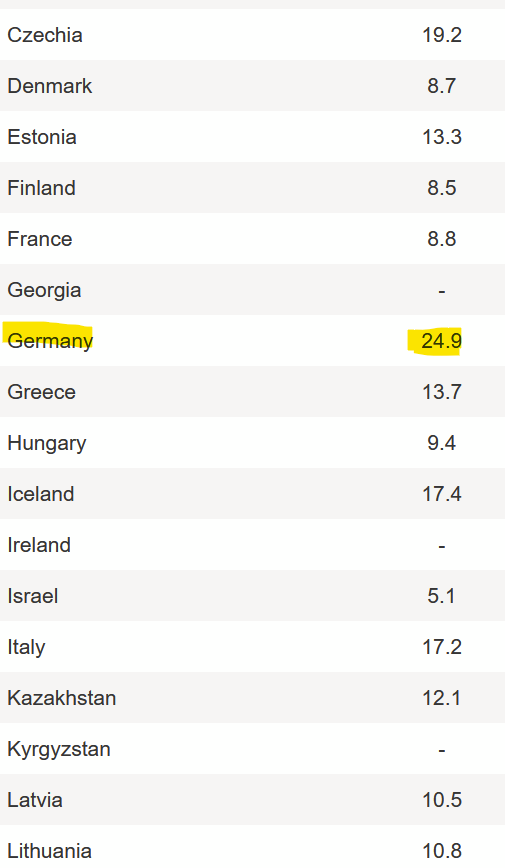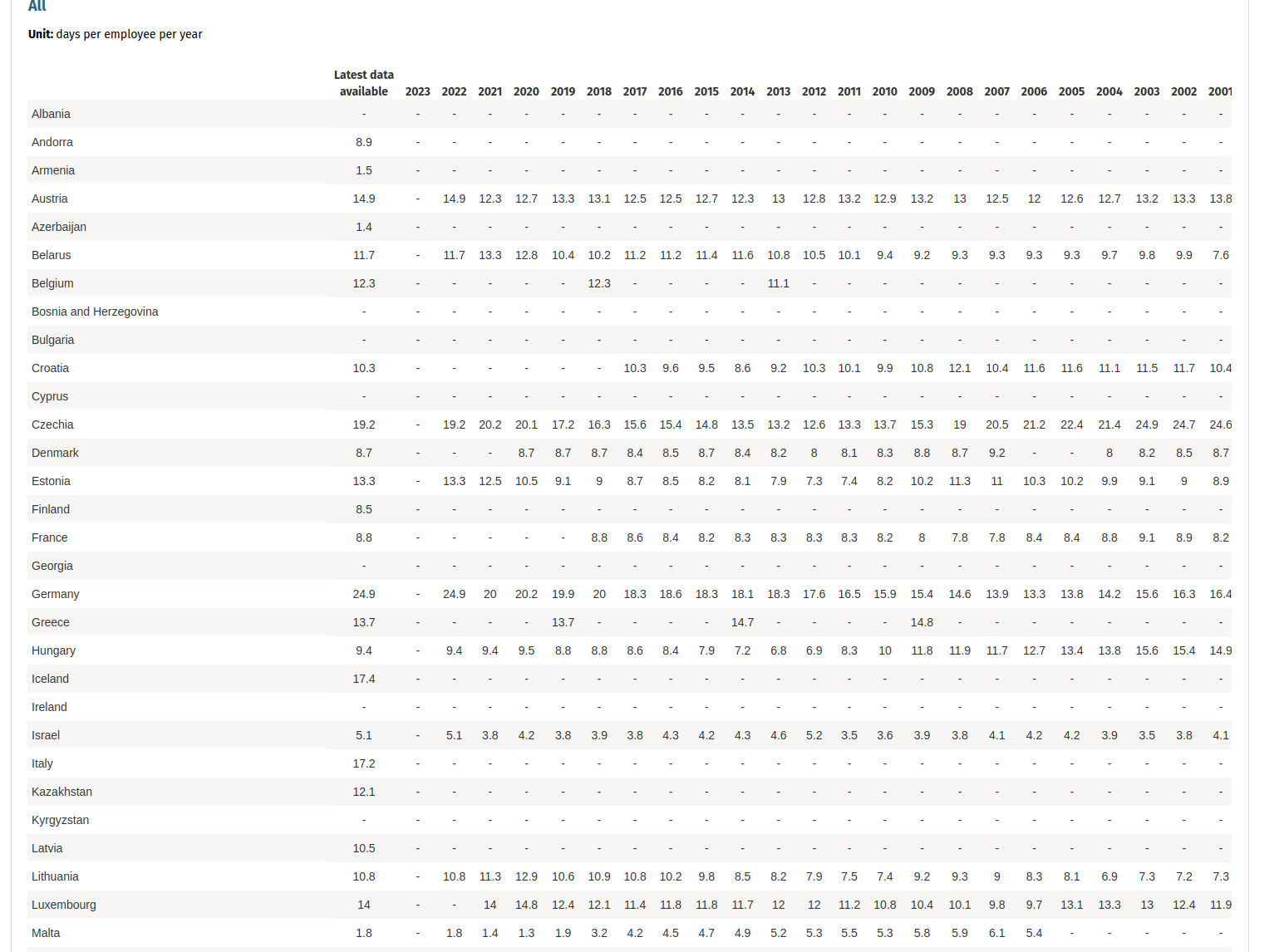Germans call in sick more than 20 days per year on average, much more than workers in other EU countries.
Without the increase in sick days, the German economy could have grown by around 0.5% in 2023, instead of retracting by 0.3%, a study by pharma industry association vfa estimated last year.
It might also be related to the German national sport of faking statistics and wanking over meaningless numbers, because the reporting requirements for sick days have recently changed. Of course, the press will use this to shit on workers’ rights.
Also, being sick is not being lazy.
According to most employers and politicians, (who, surely by sheer coincidence, have never done any honest work in their life) it is.
We’ve switched to eAU (Elektronische Arbeitsunfähigkeitsbescheinigung / electronic sick certificate). This was done on paper before and a lot of cases were missing in the statistics. So the increase in sick days could be explained by better / accurate statistics instead of people actually being sick more.
Without the increase in sick days, the German economy could have grown by around 0.5% in 2023, instead of retracting by 0.3%
that’s not true: The system when and how Germans had to call in sick had changed 2 times due COVID, which affected the numbers.
Do you suspect it is a data alignment issue causing the discrepancy? Germany is very high up compared to other countries:

No, during COVID Germans gained the right to call their doctor, instead of visiting, to get a certificate of incapacity, so they would not risk to infect others on the way to the doctor. This had the side effect of more sicknesses being official and registered. Previously short sicknesses went undocumented, because the employer has to pay the employee in Germany for sick leave for 7 weeks anyway and only at the 3rd day a certificate, which makes it official, is required. So people sick for only 1 or 2 days are now popping up in the statistics, even though they were likely like that all the time, but unofficially.
By data alignment I mean do you think France/Austria/others are having just as many sick days but they are not being counted?
Compared to France you were still quite high, but France does not have any data since 2018? Why? But even back in 2018 you had more than double that of France and Estonia etc

It looks like Germany and Czechia have significantly higher sick days compared to everyone else
For the downvotes: I am ok with this, I am more interested in the discussion on why Germany appears to rank so high in sick days (also Czechia as well)
I appreciate this deeper analysis. As a physician, concerned about public health, it would be useful to know with greater specificity what these higher numbers are due to, be it actual days of milder infectious disease which prevent / slow spread of disease, ‘mental health’ days (mental health care is part of health care), changes / misalignment with countries data collection, etc. With COVID, and other potential sources of post viral syndromes, increasing overall morbidity, such research could be useful in guiding public health policy towards better outcomes.
Oh! Won’t someone think of the economy! /s
How is it possible that an article so crudely mixes illness with laziness? On the other hand, if Germany hadn’t taken such an arrogant attitude during the 2008 financial crisis, labeling all of Southern Europe as lazy and incompetent based on statistics like this, this news wouldn’t feel so satisfying.
I don’t believe that revenge will get us anywhere, but I can’t help but crack a slight smile while reading it.
I totally understand this feeling but let me tell you that German politicians are likewise using these numbers to label their own populace as lazy. So actually politicians don’t seem to really care about nationality when they can smear someone and destruct the welfare state.
But maybe Germans deserve it a bit more lol.
No, they don’t deserve it—that’s the point. No population deserves to be treated that way as a whole. Politicians and the powerful, in general, will make you see others in whatever way suits them, whenever it suits them. Fifteen years ago, from the South, we tried to explain it in many ways, but back then, it seemed like the German population fell for their establishment’s trap (I suppose there would be all kinds of people, but at least a part of them did fall for it). Now, in the South, we know that’s all nonsense, and we don’t buy into it, even if at specific moments we say, ‘See? What you said about me can also be applied to you.’
The Germans lazy? No one would say that, at least for all the Germans. A little less flexible to improvise than in the south and throwing arrogants about the quality of their work, but nobody would say lazy
Mental health days!

We call those weakdays
Germans itt: NEIN We ARE NOT LAZY





